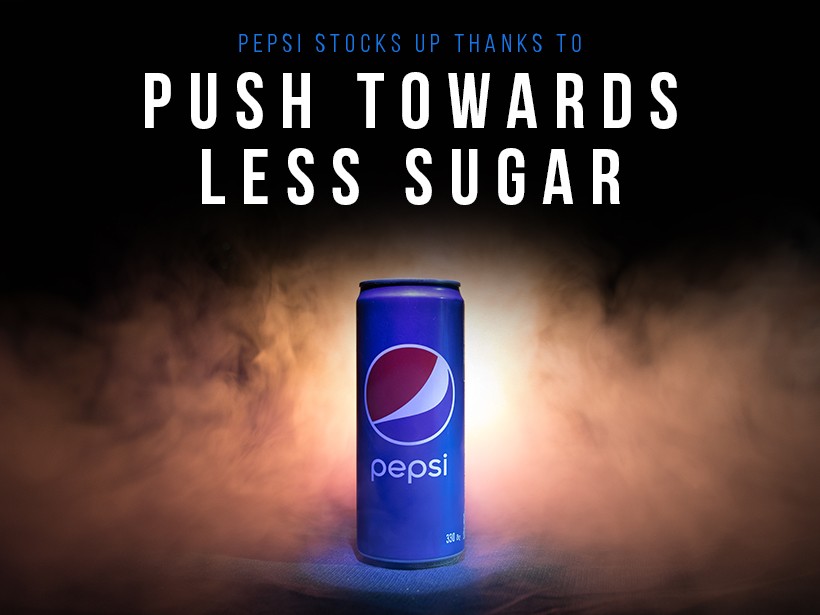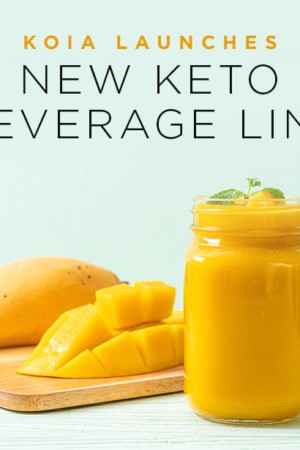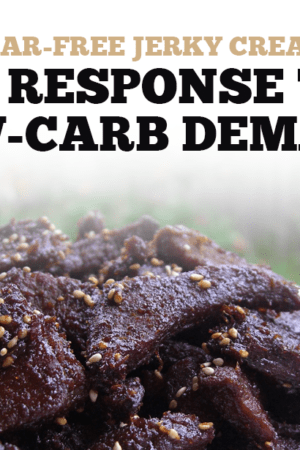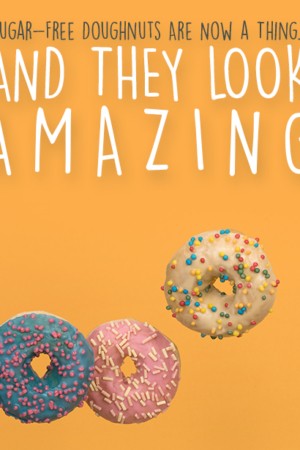PepsiCo’s stock is on the rise thanks to its response to consumer concerns over sugar. After eight quarters of decline, the company has seen four straight quarters of improving sales since it began aggressively removing sugar from its product portfolio. Pepsi is one of a number of major food and beverage companies answering international calls for healthier products. Calls for less sugar—in sodas in particular—have moved from the realm of consumer demand to that of government regulation, as countries around the world crack down on obesity. The most recent and effective of these taxes were implemented in the U.K. and Ireland, which themselves are designed to incentivize companies like Pepsi to cut sugar.1
Pepsi Promoting its Low-Sugar Portfolio
PepsiCo has a unique solution to these global developments, which pose a serious threat to companies like it who rely on sugar as a base ingredient. It has divided its product portfolio into three parts: fun-for-you, which includes junk food and snacks like Pepsi itself, Lay’s, Doritos, Mountain Dew; better-for-you, Diet Pepsi, Baked Lay’s; and good-for-you, products like Quaker Oats and Tropicana juices. Chairman and CEO of the company Indra Nooyi says that besides investing more heavily in its healthier products, the company is trying to improve the nutritional quality of its fun-for-you products and lower the sugar content.2
An Industry Trend to Dump Sugar
Pepsi is hardly alone. Coke, too, is diversifying in healthier products. Coke Zero Sugar is itself being taken as a symbol of a new, desperate shift away from the standard 40-gram cans we’ve all become so used to over the decades. This is true insofar as the major significance of Coke Zero Sugar, as opposed to the more classic Coke Zero, is the name change. Far from quietly cutting down sugar to escape new sugar taxes, these companies are doubling down on low-sugar advertising.3
Nooyi’s claim that these decisions are flying in the face of industry analysts and are being done out of a humanitarian goodwill is a stretch, as it is clearly instead a part of an industry-wide retreat from sugar. Make no mistake, consumer and regulatory demands are driving this change and that is a good thing. The day the world has to rely on the sympathy of PepsiCo for nutritional quality will be a dark day indeed. Rather, a global pushback against the excess sugar driving national obesity crises is what’s forcing Pepsi and the food industry at large to cut down on the sweet stuff.
NUTRITIONAL DISCLAIMER
The content on this website should not be taken as medical advice and you should ALWAYS consult with your doctor before starting any diet or exercise program. We provide nutritional data for our recipes as a courtesy to our readers. We use Total Keto Diet app software to calculate the nutrition and we remove fiber and sugar alcohols, like erythritol, from the total carbohydrate count to get to the net carb count, as they do not affect your blood glucose levels. You should independently calculate nutritional information on your own and not rely on our data. The website or content herein is not intended to cure, prevent, diagnose or treat any disease. This website shall not be liable for adverse reactions or any other outcome resulting from the use of recipes or recommendations on the Website or actions you take as a result. Any action you take is strictly at your own risk.
- For Keto, the Everyday Research Says it All - March 6, 2019
- Huge Harvard Study Backs Up the Wide-Ranging Benefits of a Low-Carb Diet - February 25, 2019
- Experts Convene for Keto Conference - July 30, 2018




